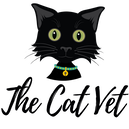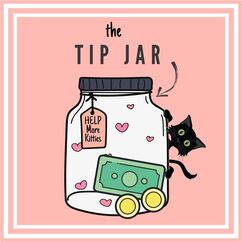Is it ok if my cat only ever drinks milk and refuses water?
Generally speaking, it's not a good idea to offer cats milk. The best drink by far to help keep your cat hydrated is water, although as you'll see below there are certain milks and specific circumstances where a little bit of the right sort of milk might be useful for managing your cat's water balance and health.
Is it ok to give my cat dairy milk to drink?
I'll clarify that I'm not talking about a certain chocolate bar here (which incidentally is toxic to cats). I am referring to the white liquid stuff that comes from the udders of farm animals!
Here are some important points to mention about cats and dairy milk.
What about giving my cat vegetarian, plant-based milks?
You may be tempted to offer non-dairy, vegan milks such as oat, soya, almond, rice or coconut milks to your cat as a lactose-free alternative to dairy milk, however this isn't a good idea either. As carnivores, cats are less likely to be able to digest the plant-based carbohydrates and fats contained in these dairy milk alternatives, and it's more likely that there'll be additives in these milks which may not suit the feline gut either.
Are there any types of milk or situations when milk can actually be useful for cats?
If your cat is a milk lover, then certain milks can help hydrate elderly or sick cats. They can also boost their fluid intake with certain medications or longterm health conditions described earlier, then certain milks may be helpful. Only consider offering:
Is it ok if my cat won't drink water, only milk?
This isn't an ideal situation and is one of the risks of starting to offer milk in the first place unfortunately. It can be rather like when cats get a taste for tuna - it can be hard for other foods to match the strength of that fishy taste tuna has and some cats can flatly refuse to eat anything else, which is obviously not healthy on many levels. Anyway back to milk (but the strategy for weaning off is the same for tuna and milk)... so if your cat takes a shine to milk and becomes obsessed with it, then they may expect it every time in place of real water.
But all is not lost, here are some general pointers:
If the milk is causing your cat any tummy upsets, then stop offering it straight away.
Assuming however that they are fine and just addicted to the taste or have learned to enjoy the treat, then you should look to reduce the amount your are giving gradually down to a token gesture - you could even use a alcoholic spirit drinking measure or an old 15ml medicine measure to give a little "shot" of the set amount, but ideally aim to stop altogether.
How do I wean my cat off their milk addiction?
The best way to ensure your cat continues to drink similar amounts of fluid, is to:
If you're having no success...
It's always good to zoom out and put things in perspective with your individual cats situation.
For instance if your cat is eating dry food only, or has medication or an illness that increases their thirst, then the cat milk may be helping them to meet their daily water requirements (NB: except kidney disease - see above comments about phosphate levels) . For some of these cats, the water content in the milk may be doing a lot of good if they won't take enough plain water in otherwise. Perhaps for these cats, it may be in their best interests to not upset the balance by attempting to cut out milk entirely. It may be worth continuing it in some capacity either in smaller amounts or by diluting it gradually with water to a more acceptable level.
Also, always be mindful of whether those extra milk calories causing too much weight gain. If your cat is on the hefty side, then it may not be worth continuing with milk. It's a tricky balance and worth discussing with your vet. If your cat's active, lean, healthy and entirely fed on wet cat food then they are likely to be a better candidate for coping without the milk. Their body is less likely to miss the extra fluid intake that the milk offered because they already obtain plenty of moisture through their food.
So in summary, in an ideal world, aim to stop the milk altogether, but in certain situations the benefits and risks of the extra fluid intake need to be weighed up in view of the cat in front of you. You just need to be sensible - so that means not giving such large amounts of milk that your cat is eating less of their daily food ration, simply because they've filled up on milk. Or, the opposite where they're getting too much full fat milk and stacking on the weight or consuming excessive levels of phosphate.
Always look at things in the context of your own cat's situation - it might not be the end of the world for them to have some cat milk in their life. If you're keen to give your cat their #bestlife - you need to help to keep them hydrated. Check out my dedicated water course for cat lovers 'Feline well hydrated - encouraging cats to consume more water'. It's all about understanding how what your cat thinks about water delivered with lots of practical tips for making water more accessible and appealing to them. The aim is to have you doing your very best to help set cats up to keep themselves well hydrated.
Is it ok to give my cat dairy milk to drink?
I'll clarify that I'm not talking about a certain chocolate bar here (which incidentally is toxic to cats). I am referring to the white liquid stuff that comes from the udders of farm animals!
Here are some important points to mention about cats and dairy milk.
- Milk is not nutritionally necessary for cats. It's definitely a myth that cats need dairy milk in their lives. Kittens need their mother's milk (or a feline milk replacement formula) until they are fully weaned onto solid meat-based food, but older kittens and cats do not require any nutrition from milk.
- Milk can contribute to weight gain and risks weight loss. Milk, whether it's dairy or commercially formulated 'cat milk', contains extra calories that the vast majority of cats do not need. When fed alongside their daily quota of food, milk increases the risk of weight gain, obesity and all the illnesses that go along with that (eg diabetes). There's also the risk that a sick or an elderly cat that is struggling to meet it's nutritional and calorie quota each day with their food intake, may lose weight if they fill up their belly with something like milk (which is less nutrient rich than food), leaving no room for the essential nutrients found in their food.
- The phosphate levels in dairy milk aren't great for cats with kidney (renal) disease. Cats with reduced renal function definitely need our help to stay hydrated, but there are far better ways to enhance water intake. In fact, optimising every cat's water intake and hydration is such an important area of knowledge for all cat people to know about that I've dedicated an entire course to it. Find out more about what every cat person needs to know about cats and their water balance here.
- Lactose in milk is poorly digested so risks causing diarrhoea and dehydration. Dairy milk contains lactose and most cats tend to be lactose intolerant. Whether you're a human or a cat, the issue with lactose intolerance is that you lack an enzyme called lactase, needed to digest the naturally occurring lactose - a carbohydrate, sugar, found in milk. Any undigested lactose sugar attracts water as it passes through the gut, resulting in diarrhoea and in some cats, vomiting. So then you have the complete opposite of what you intended. That "treat" or extra fluid intake has actually given your cat a tummy ache and caused loss of fluid, so brought them closer towards relative dehydration, instead!
- Modern milk is less appealing to cats. It's the fat content of dairy products like milk and cheese that tends to be the main taste attraction for cats. The saying "cats got the cream" and stereotypical vintage photos of cats lapping the top of milk bottles, comes from the fact that traditionally pure whole cows milk had a thick layer of cream on top. That fat fraction tends to be lower in lactose than the liquid milk below, so cats may well have tolerated it better. Many cats led a more outdoorsy lifestyle back then too, so we humans probably didn't notice the "runny bottom" aftermath as cats had already cleaned themselves up. The problem today, is that modern milk is often homogenised, skimmed, filtered and low in fat, so truth be told, many cats may not even like the meagre offerings most people have in their fridge.
What about giving my cat vegetarian, plant-based milks?
You may be tempted to offer non-dairy, vegan milks such as oat, soya, almond, rice or coconut milks to your cat as a lactose-free alternative to dairy milk, however this isn't a good idea either. As carnivores, cats are less likely to be able to digest the plant-based carbohydrates and fats contained in these dairy milk alternatives, and it's more likely that there'll be additives in these milks which may not suit the feline gut either.
Are there any types of milk or situations when milk can actually be useful for cats?
If your cat is a milk lover, then certain milks can help hydrate elderly or sick cats. They can also boost their fluid intake with certain medications or longterm health conditions described earlier, then certain milks may be helpful. Only consider offering:
- Cat milk - this is lactose reduced (usually by around 98% or more) and may be a way of increasing fluid and calorie intake in cats that need it and helping to wean kittens off others milk by mixing some in with their cat food to begin with.
- Lactose-free dairy milk - this is normal milk with added enzyme that breaks down the lactose so it may be tolerated unless your cat has an allergy or intolerance to the milk protein as well.
Is it ok if my cat won't drink water, only milk?
This isn't an ideal situation and is one of the risks of starting to offer milk in the first place unfortunately. It can be rather like when cats get a taste for tuna - it can be hard for other foods to match the strength of that fishy taste tuna has and some cats can flatly refuse to eat anything else, which is obviously not healthy on many levels. Anyway back to milk (but the strategy for weaning off is the same for tuna and milk)... so if your cat takes a shine to milk and becomes obsessed with it, then they may expect it every time in place of real water.
But all is not lost, here are some general pointers:
If the milk is causing your cat any tummy upsets, then stop offering it straight away.
Assuming however that they are fine and just addicted to the taste or have learned to enjoy the treat, then you should look to reduce the amount your are giving gradually down to a token gesture - you could even use a alcoholic spirit drinking measure or an old 15ml medicine measure to give a little "shot" of the set amount, but ideally aim to stop altogether.
How do I wean my cat off their milk addiction?
The best way to ensure your cat continues to drink similar amounts of fluid, is to:
- Wean them off any milk gradually
- Reduce the amount of milk but top it up to the same volume as before with water
- Do this over many weeks, replacing a teaspoon of milk with water each day
- This will make it less likely that they will notice your dilutions as a taste change.
If you're having no success...
It's always good to zoom out and put things in perspective with your individual cats situation.
For instance if your cat is eating dry food only, or has medication or an illness that increases their thirst, then the cat milk may be helping them to meet their daily water requirements (NB: except kidney disease - see above comments about phosphate levels) . For some of these cats, the water content in the milk may be doing a lot of good if they won't take enough plain water in otherwise. Perhaps for these cats, it may be in their best interests to not upset the balance by attempting to cut out milk entirely. It may be worth continuing it in some capacity either in smaller amounts or by diluting it gradually with water to a more acceptable level.
Also, always be mindful of whether those extra milk calories causing too much weight gain. If your cat is on the hefty side, then it may not be worth continuing with milk. It's a tricky balance and worth discussing with your vet. If your cat's active, lean, healthy and entirely fed on wet cat food then they are likely to be a better candidate for coping without the milk. Their body is less likely to miss the extra fluid intake that the milk offered because they already obtain plenty of moisture through their food.
So in summary, in an ideal world, aim to stop the milk altogether, but in certain situations the benefits and risks of the extra fluid intake need to be weighed up in view of the cat in front of you. You just need to be sensible - so that means not giving such large amounts of milk that your cat is eating less of their daily food ration, simply because they've filled up on milk. Or, the opposite where they're getting too much full fat milk and stacking on the weight or consuming excessive levels of phosphate.
Always look at things in the context of your own cat's situation - it might not be the end of the world for them to have some cat milk in their life. If you're keen to give your cat their #bestlife - you need to help to keep them hydrated. Check out my dedicated water course for cat lovers 'Feline well hydrated - encouraging cats to consume more water'. It's all about understanding how what your cat thinks about water delivered with lots of practical tips for making water more accessible and appealing to them. The aim is to have you doing your very best to help set cats up to keep themselves well hydrated.





